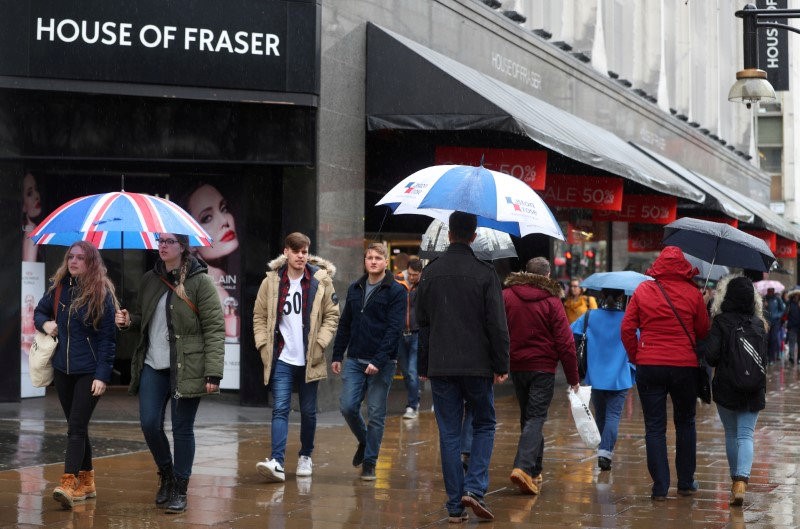By Geoffrey Smith
Investing.com — The crisis in the U.K. retail sector is coming to a head thanks to Covid-19, and while the identify of the losers has been clear for a while, it’s still far from clear who will be the big winners.
No amount of government help, furlough schemes, rent adjustments and other financial wizardry could put off the inevitable for Arcadia, the empire of British retail entrepreneur Philip Green.
The group, which owns the Topshop, Topman, Miss Selfridge and Burton chains that epitomize an increasingly dreary and downmarket British high street, is on the verge of collapse. A slew of reports at the weekend indicated that Arcadia will appoint administrators this week, a prelude to what will almost certainly spell thousands of job losses and hundreds of store closures.
The development comes at a time when another slow-moving retail dinosaur, Debenhams, is also facing extinction, unless it accepts the advances of JD Sports Fashion
The social and political cost could be huge: Arcadia and Debenhams employ around 25,000 people across the U.K. and few can have much hope for their jobs. Arcadia also has 110,000 people enrolled in a corporate pension plan that has, reportedly, a deficit of around 350 million pounds ($470 million). The company is privately-owned and hasn’t disclosed the actual figures.
For stock market investors, the question boils down to two issues: who will grow fat on the carcasses of the two businesses, and whether what is left to decompose on the high street will infect those that are still left.
As regards the first, there are already signs of predators – or rather scavengers – claiming first dibs. Frasers, which includes the House of Fraser department store and Sports Direct , confirmed on Monday that it had offered Arcadia a 50 million-pound ($65 million) lifeline, but gave no details of the conditions it had attached.
Given the past bad blood between Green and Frasers owner Mike Ashley, it’s quite possible that even a more generous offer would be rejected out of pride (or spite) alone. However, Ashley has a double incentive at work. Not only can he hope to repeat previous successes in turning round distressed assets, but he also has to defend the value of his existing stable of brands. House of Fraser, in particular, needs social cachet to defend its margins. Every boarded-up shop window in the neighborhood robs it of that.
The market has already decided that the collapse of Debenhams and Arcadia is bad news for Frasers: its shares lost over 6% over the last week as this crisis crystallized. At the same time, the collapse of Arcadia has strengthened the hand of JD Sports in its negotiations with Debenhams. Its shares rose 6% on Monday on expectations that it will be able to drive a harder bargain.
Shares in Primark owner ABF also rose another 0.9% to be up 6.4% on the week on the prospect of some excess capacity closing. But two other, bigger, gainers were online-only rivals ASOS and boohoo, which rose 3.9% and 4.1% respectively. For the latter, which raised capital from investors in the summer to prepare for just such bargain-hunting, the intriguing question is whether Arcadia’s prime locations in central London will finally tempt it into having a brick-and-mortar presence. If the price is close enough to zero, the answer could well be yes.
